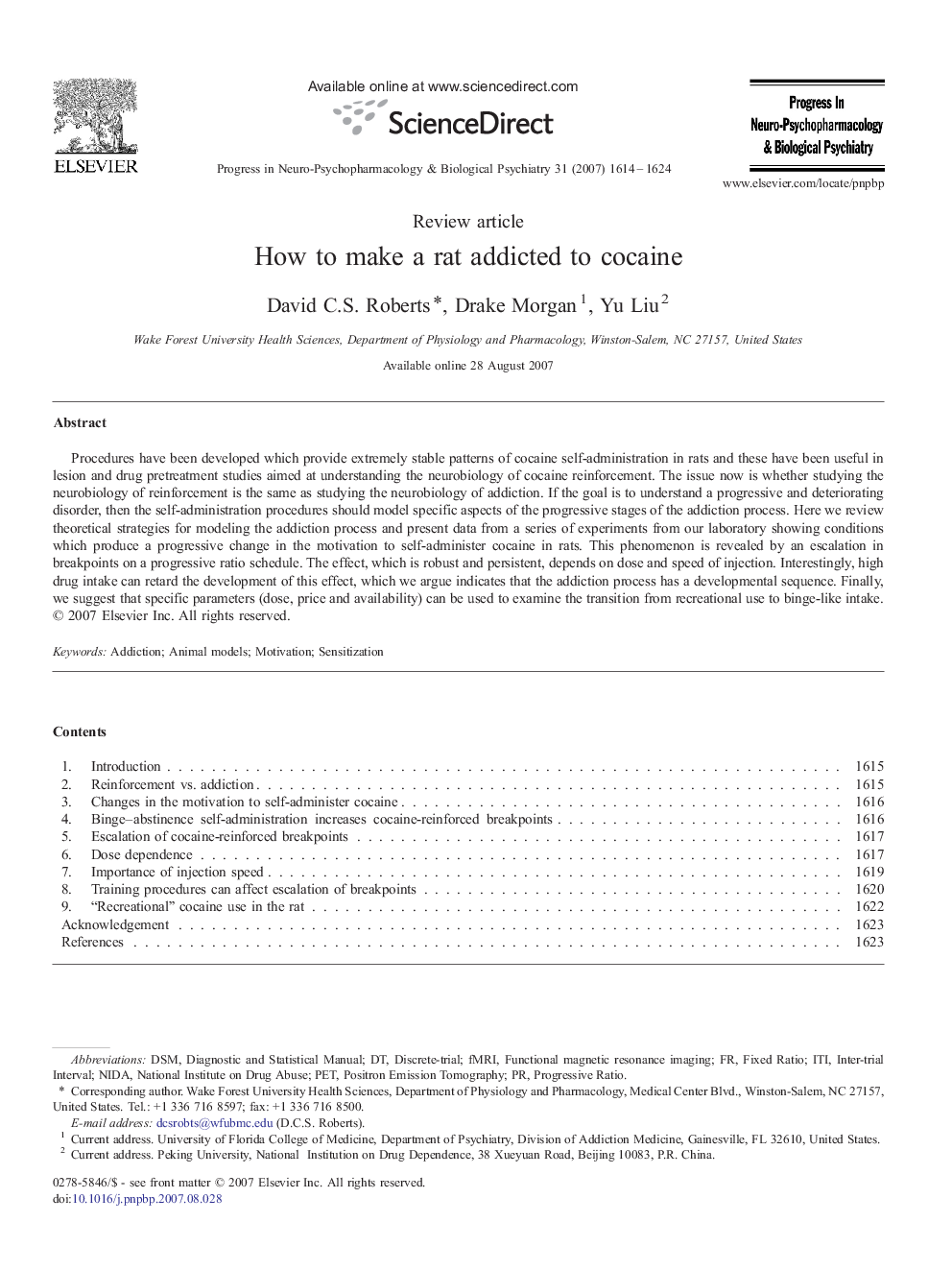| Article ID | Journal | Published Year | Pages | File Type |
|---|---|---|---|---|
| 2566267 | Progress in Neuro-Psychopharmacology and Biological Psychiatry | 2007 | 11 Pages |
Procedures have been developed which provide extremely stable patterns of cocaine self-administration in rats and these have been useful in lesion and drug pretreatment studies aimed at understanding the neurobiology of cocaine reinforcement. The issue now is whether studying the neurobiology of reinforcement is the same as studying the neurobiology of addiction. If the goal is to understand a progressive and deteriorating disorder, then the self-administration procedures should model specific aspects of the progressive stages of the addiction process. Here we review theoretical strategies for modeling the addiction process and present data from a series of experiments from our laboratory showing conditions which produce a progressive change in the motivation to self-administer cocaine in rats. This phenomenon is revealed by an escalation in breakpoints on a progressive ratio schedule. The effect, which is robust and persistent, depends on dose and speed of injection. Interestingly, high drug intake can retard the development of this effect, which we argue indicates that the addiction process has a developmental sequence. Finally, we suggest that specific parameters (dose, price and availability) can be used to examine the transition from recreational use to binge-like intake.
